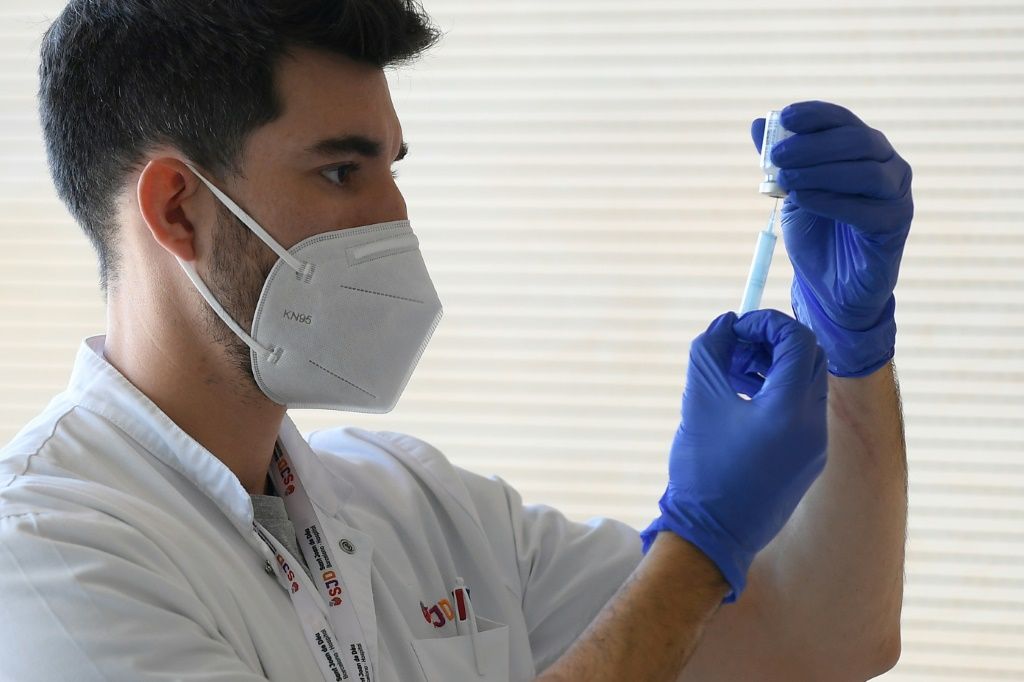Many U.S. adults refused to get boosted against COVID-19, especially now that the world has entered the post-pandemic era.
Based on official figures obtained on May 10, only 1 in 5 or 20.5% of adults in the U.S. had gotten the bivalent booster shots. Because of this, experts are worried about the consequences the low uptake might have.
“Uptake has been quite low. It makes complete sense for adults — especially those in high-risk groups, including the elderly and those with chronic disease — to have a bivalent shot if they haven’t already had one,” Dr. Marc Siegel, a professor of medicine at NYU Langone Medical Center, told Fox News Digital this week.
Siegel warned that the novel coronavirus “is still with us” even though cases and deaths have continuously declined. He cited the “huge” outbreak happening in China as proof that the virus remains a public health threat.
However, he also pointed out that compared to China, the U.S. appears to have better immunity against the newer strains of SARS-CoV-2.
“Here in the U.S., with XBB subvariants still predominating, we do have a lot more population immunity than China does,” he said.
According to Siegel, there are two reasons why the U.S. has better immunity: vaccination and prior infection. However, such protection afforded by the vaccines is bound to dwindle in the long run if no booster is taken.
“That immunity is due to both prior infection as well as vaccination. But the vaccine effect on decreasing severity or preventing long COVID is not forever — after a year, that effect has certainly declined significantly,” he explained.
Dr. Shana Johnson, a physical medicine and rehabilitation physician in Scottsdale, Arizona, also spoke with Fox News Digital about the COVID-19 vaccine boosters.
She said that the bivalent mRNA boosters provide protection against severe outcomes, including hospitalization and critical disease, but the durability of this protection is not long-term.
“For adults, the vaccine effectiveness dropped from 62% at two months after vaccination to 24% at four to six months for protection against COVID-19 hospitalization. Durability was better for preventing critical COVID-19 disease, at 50% at four to six months after vaccination,” she said.
On May 5, the World Health Organization (WHO) declared the COVID-19 pandemic officially over. However, it also cautioned that since the virus continues to mutate, everyone should stay up to date with the recommended COVID-19 vaccines and boosters.
But even before the announcement, many Americans were already refusing to get vaccinated or boosted. Data released in March showed the U.S. already reached a state of “vaccine fatigue,” with many adults refusing the vaccine boosters due to “perceived burden or burnout.”
“Unfortunately, many people believe that COVID is no longer a serious health threat they should be concerned about,” Dr. Norman B. Gaylis, the medical director at the Immunotherapy Center of South Florida, said at the time, adding that many lost their trust amid the conflicting viewpoints and controversies surrounding the vaccines.
Last month, the U.S. Centers for Disease Control and Prevention (CDC) released a report indicating that vaccinated adults have “relatively little” protection from COVID after skipping the bivalent booster shots.
The public health agency then reminded the public, especially the immunocompromised, to get boosted and stay up to date with the recommended vaccines.
“Adults should stay up to date with recommended COVID-19 vaccines. Optional additional bivalent vaccine doses are available for older adults and persons with immunocompromising conditions,” the CDC wrote.
Published by Medicaldaily.com


